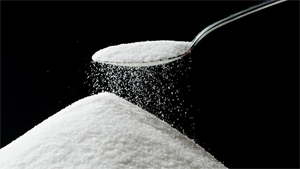As a drug and alcohol counselor, I have always known that sugar triggers receptors similar to cocaine, heroine and other recreational drugs. Some clients in therapy tell me they are addicted to sugar. This informative and interesting article, validates how high amounts of sugar can be addictive and detrimental. I want to add that alcohol turns to sugar once absorbed in the blood system. Stay healthy for the holidays and keep in mind the effects of alcohol and sugar!
I have always known that sugar triggers receptors similar to cocaine, heroine and other recreational drugs. Some clients in therapy tell me they are addicted to sugar. This informative and interesting article, validates how high amounts of sugar can be addictive and detrimental. I want to add that alcohol turns to sugar once absorbed in the blood system. Stay healthy for the holidays and keep in mind the effects of alcohol and sugar!
The Effect of Sugar on the Brain
Not only does sugar trigger a hormonal response in the body with the release of insulin, but it also has a significant effect on the brain. As soon as sugar enters the mouth, a message is sent to the brain which activates the reward centers. This then releases dopamine which results in a temporary state of perceived happiness or a “high”. This biological response convinces our brain and body that we need more in order to experience that “high” again.
Due to this rewarding response in the brain, sugar can be quite addictive. Scientists have compared the brains response to cocaine, heroine, nicotine and alcohol and sugar consumption and although the effects from sugar weren’t as extreme as these toxic substances, they found surprisingly similar results. They found that the same areas of the brain are activated for all of these substances.
A study in Neurology found that a diet that is high in sugar or other simple carbohydrates can be detrimental to the function and structure of the brain. They found that higher glucose consumption led to decreased memory. This higher glucose consumption can also lead to diabetes, obesity, high blood pressure and liver damage.
All-natural sugars like coconut sugar, agave and honey that have often been considered to be healthier options, but these substances actually contain almost as much glucose as refined table sugar. In addition, there are hidden sugars in many foods that we may not be aware of – such as ketchup, yogurt, flavored beverages and even naturally-sweetened foods found at a health food store. Many foods do not list “sugar” as an ingredient on the label but do list a derivation of the word such as: sucrose, fructose, dextrose, starch, fruit juice, corn syrup or high fructose corn syrup.
To preserve your brain’s function and structure, and your body’s overall health, do yourself a favor and limit your sugar consumption to less than 25 grams of sugar per day (as recommended by the World Health Organization). To give you some perspective of that 25 grams (or 6 teaspoons) of sugar is, consider a can of soda which is about 39 grams of sugar while an apple which contains about 19 grams.
Courtesy of http://www.myvitawellness.com
